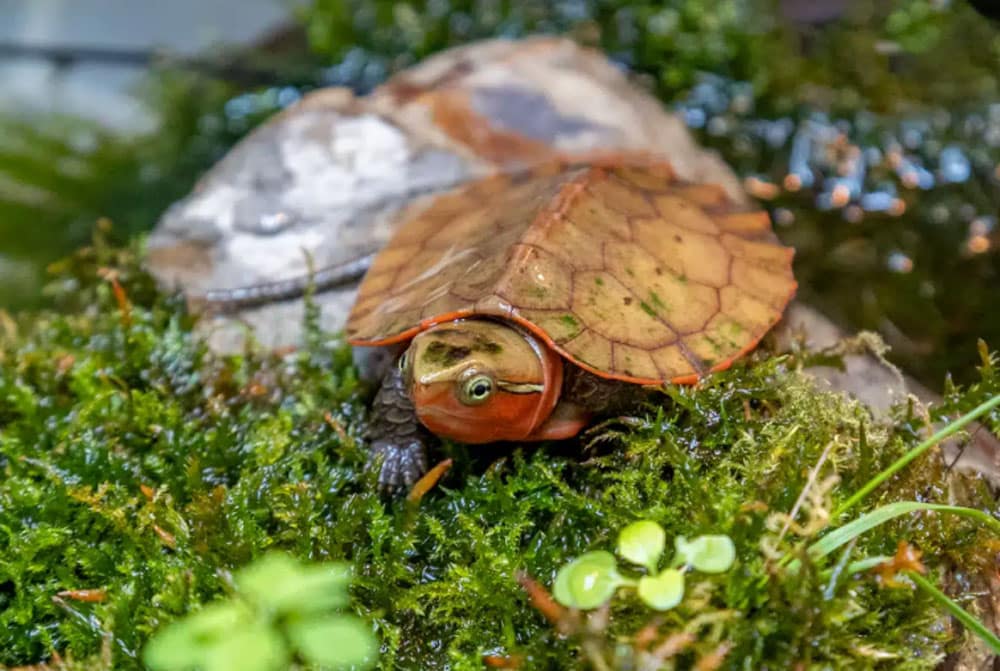The Newquay Zoo in Newquay, Cornwall, England announced it has added a critically endangered big-headed turtle (Platysternon megacephalum) to its coll
The Newquay Zoo in Newquay, Cornwall, England announced it has added a critically endangered big-headed turtle (Platysternon megacephalum) to its collection of endangered animals. Currently the turtle measures less than 5cm from head to tail, and is expected to reach 40 cm when fully grown.
The critically endangered reptiles are not known to move long distances and are also not strong swimmers. In spite of this, their natural habitat includes fast moving streams filled with boulders and broken rocks. The water temperatures in these streams can reach as low as 53 degrees Fahrenheit (12 degrees Celsius) and rarely exceed 72 degrees Fahrenheit (23 degrees Celsius). Unlike many other turtles the big-headed turtle cannot pull its head into its shell, but rather uses its powerful jaws to defend itself.
“Big-headed turtles are really struggling in the wild, so I am really glad that we can introduce this fascinating species to our visitors and highlight the issues threatening its survival,” Simon Pratley, keeper at Newquay Zoo said in a press release put out by the zoo.
In the wild, the big-headed turtle is found in the Southeast Asian countries of Cambodia, China, Laos , Myanmar (Formerly Burma), Thailand and Vietnam. The species is struggling in the wild, according to the zoo, as its population has decreased by 90 percent over the last 90 years. Factors that are contributing to the decline in the turtle includes climate change, habitat pollution, use in traditional medicine, the illegal pet trade, farming and development.
There are three subspecies: P. m. megacephalum, China, P. m. peguense, Myanmar and Thailand, and P. m. shiui, Cambodia, Laos and Vietnam.
The individual at the zoo has not yet been sexed. It will be on display at the Tropical House at NewQuay Zoo later this month, the zoo said. The zoo is part of the Wild Planet Trust, which works to stop species decline around the world. The zoo currently houses 35 critically endangered species.



